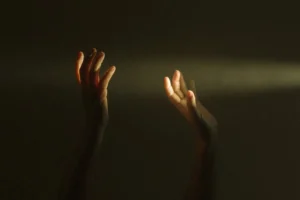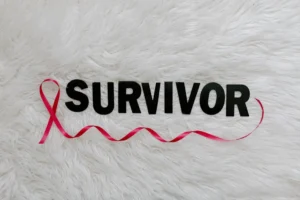Imagine standing on stage, the roar of thousands of fans echoing in your ears, yet feeling utterly alone. This was the reality for Robbie Williams, one of the most iconic pop stars of our time. Behind the glitz, the glamour, and the chart-topping hits, Robbie battled a silent adversary that few knew about—until now.
The Weight of Fame

Robbie Williams skyrocketed to fame as a member of Take That, but the pressure of being in the spotlight took a heavy toll. By the mid-1990s, he was struggling with substance abuse and mental health issues. In interviews, Robbie has openly discussed how he felt like he was “drowning” under the weight of expectations. “I was in a dark place,” he once admitted. “I didn’t know how to cope with the fame, the scrutiny, or even myself.”
The Breaking Point
In 2006, Robbie faced a particularly challenging period. Despite his success, he felt an overwhelming sense of emptiness. He described it as feeling like he was “standing on the edge of a cliff, looking down.” This was when he decided to seek help. Robbie checked into a rehabilitation facility, not just for substance abuse but to address the underlying mental health issues that had plagued him for years. It was a brave and pivotal moment in his life.
Finding Light in the Darkness

Robbie’s journey to recovery wasn’t easy, but it was transformative. He began therapy, embraced healthier habits, and leaned on the support of loved ones. Music also became a therapeutic outlet. Songs like “Feel” and “Angels” reflect his emotional struggles and triumphs. Robbie has since become an advocate for mental health, using his platform to encourage others to seek help and break the stigma surrounding mental illness.
The Ongoing Battle

Even today, Robbie acknowledges that mental health is a continuous journey. In a candid interview, he shared, “It’s not something you just fix and move on from. It’s something you manage, something you live with.” His honesty has resonated with fans worldwide, reminding us that even those who seem to have it all can face profound struggles.
Conclusion
Robbie Williams’ story is a powerful reminder that vulnerability is not a weakness but a strength. His openness about his mental health challenges has not only helped him heal but has also inspired countless others to confront their own struggles. So, the next time you hear one of his anthems, remember the man behind the music—a man who faced his darkest moments and emerged stronger. If Robbie’s journey teaches us anything, it’s that it’s okay to not be okay, and seeking help is a courageous step toward healing.
What’s one step you can take today to prioritize your mental health? Let Robbie’s story inspire you to take that first step.

Leave a Reply